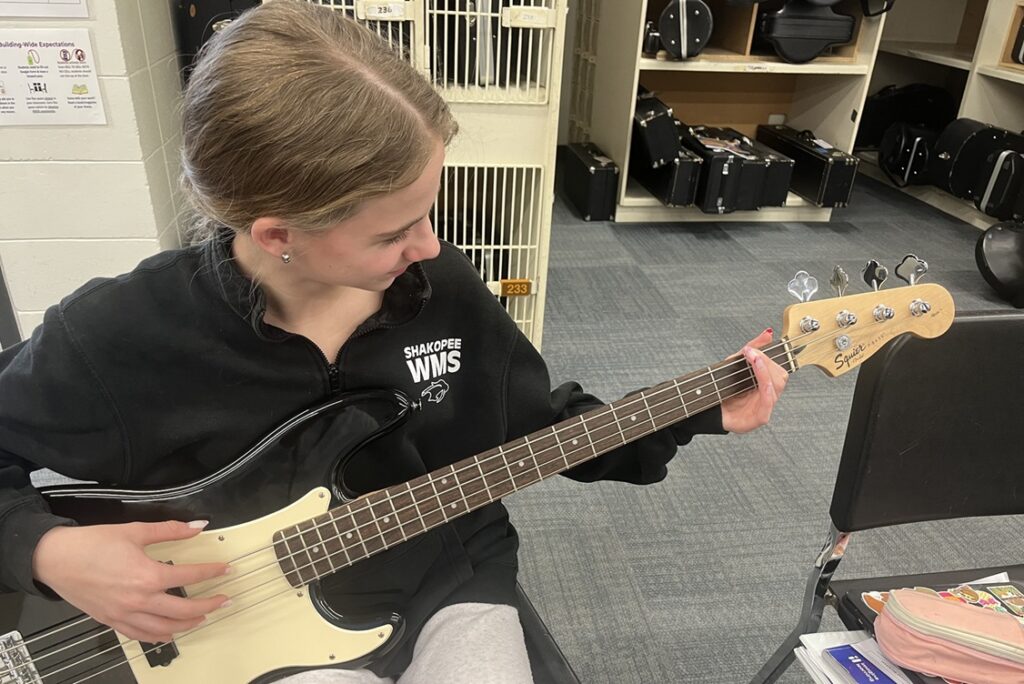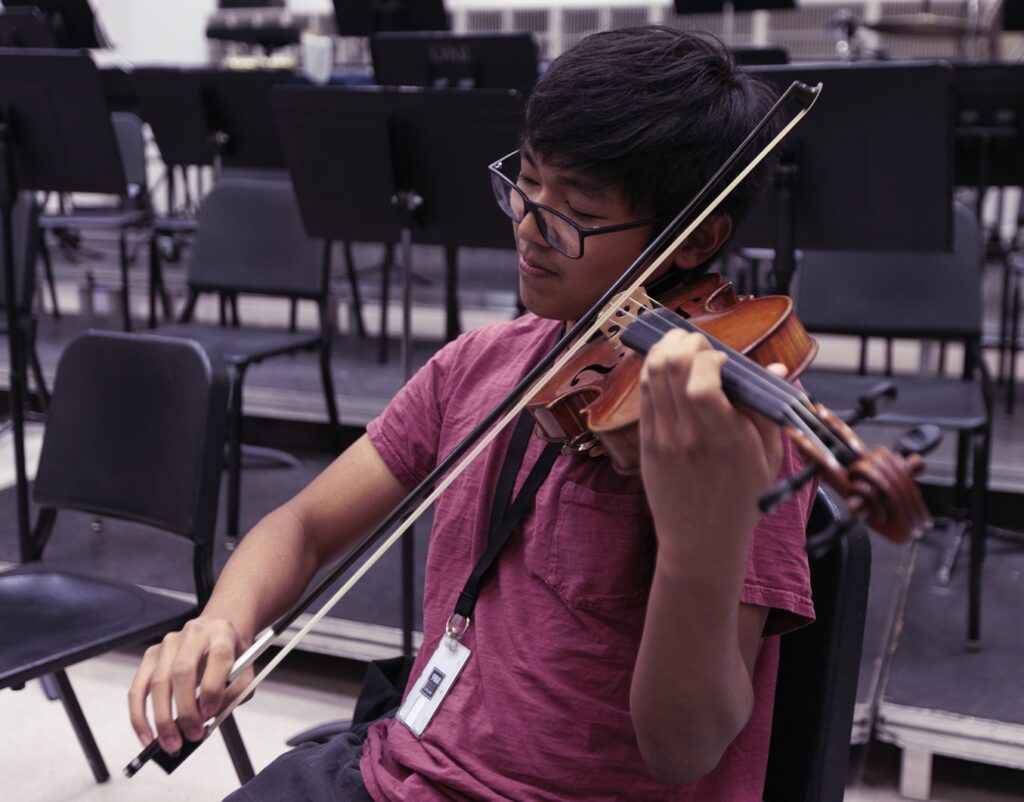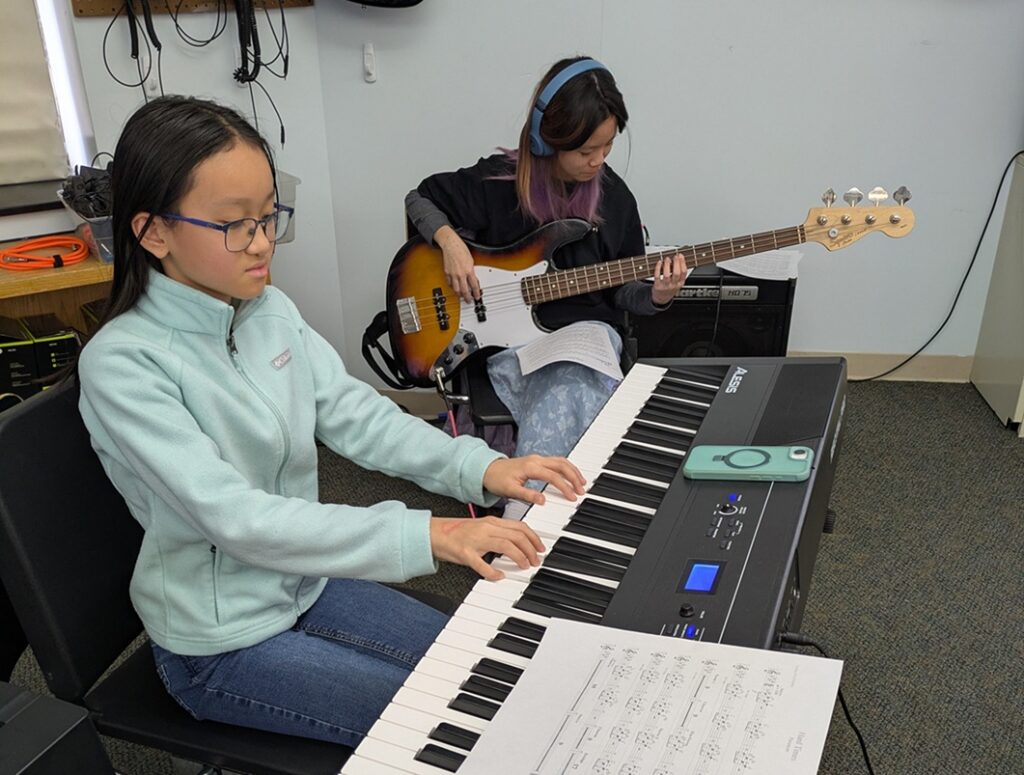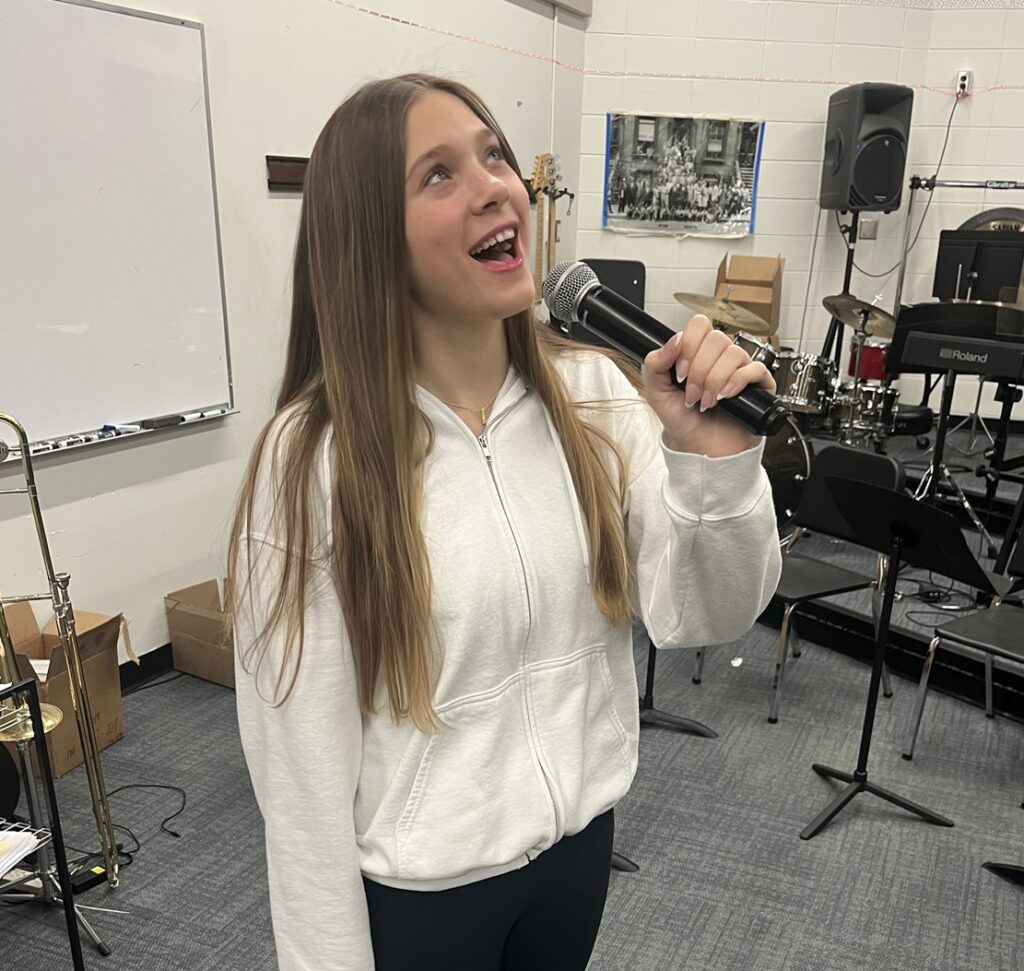Tagged Under:
The Daily Grind: Find Joy in the Routine
Embrace these five truths and you’ll succeed and thrive as a music educator.
I have been teaching junior high band in the public school system for 12 years. In that time, I have discovered what it takes to be a strong leader in my classroom while also having a deep understanding of the students in front of me. Here are five specific points that highlight essential aspects of being an effective director.

1. Embrace the Daily Grind: A Labor of Love
Teaching band is not for the faint of heart. Many music educators enter the field because we have a passion for playing our instrument, and we want to pass that on to our students. However, when you are in the day to day of the job, you realize that sometimes this is the smallest part of what you do. I recently told a student teacher, “This job is a daily grind. It is hard, but the end result can be worth it.” Their response, “That isn’t very encouraging.”
They aren’t wrong, but it is reality. From early morning rehearsals to late-night planning sessions, our dedication to fostering a love for music is what sets the foundation for success. Young music educators or those considering the field must recognize that it takes a lot of hard work, and it is this consistent effort and passion that you invest in your students that makes a lasting impact.

2. Discover and Refine Your System
Every successful director understands the importance of having a system. This has nothing to do with lesson plans and rehearsal schedules. It’s about understanding your students’ needs, creating a positive learning environment and setting clear expectations. First, take time to discover what methods work best for your unique group of students — it could be a specific teaching technique, rehearsal structure or communication strategy. Then, refine your system to maximize efficiency and create a cohesive learning experience for your students.
Here are a few examples of what I do:
- Communicate in various languages. I get much more involvement from families if I reach out in a language that they are comfortable communicating in. ChatGPT and Google Translate have come a long way. Sure, there are a few grammatical errors, but these provide a fantastic starting point.
- The daily expectations remain the same. Every. Single. Day. Yes, even during what I call the “dark days” of January/February.
- Provide the pencil. How many times do we fight students on supplies? If it is the expectation and your student population does not meet it, provide it. If it is that important to you, make it happen. Show them with your actions that you are serious. Rehearsal does not start until a pencil is on every stand. Trust me, they will learn.
- Keep your personality in your classroom. Do I do a daily pencil check? Yes. Do I sometimes put on the opening ceremony theme for the Olympics and slowly raise a pencil and wait for all students to do the same? Yes. I still require the pencil, every day.

3. Consistency is Key: Stick to Your System
Once you have identified a system that resonates with your students and enhances their musical development, consistency becomes paramount. Students thrive in an environment where expectations are clear, routines are established and the director’s approach remains steady. While it may seem tempting to experiment with new methods, resist the urge to constantly reinvent the wheel. The wheel is fine — you know what works, so just do it. Sticking to your tried-and-true system not only fosters a sense of security for your students, but it also allows them to focus on honing their musical skills without unnecessary distractions.
What’s that you say? You just went to a conference, and you are all fired up to completely change your program, which you know will be the key to what you consider success? Stop, look at what you currently do and pick one item to change. That is the only item you change this school year. Reevaluate in May.
You must give change time to settle in and then look at the results, good or bad. You wouldn’t receive an antibiotic from a doctor and not finish the full dosage. I suggest six months minimum of consistency before revisiting the decision/implementation.
Here’s a true story: Three years ago, I took a look at “Important Ingredients: A Daily Warm-up and Development Method for High School Symphonic Bands.” I quickly realized that younger students could do this as well. Why did I pick this particular method book? One of the best directors in my area not only wrote it, but he implemented it into his program. When someone is consistently going to the top festivals in your state and being recognized, it speaks for itself. “Important Ingredients” is a 24-page packet of everything your students need to reach an extraordinarily high level of musicianship. My 8th graders are playing scales with just intonation and every single student could tell you how they need to adjust the scale degrees. We have been working on it since August. Each year, I add in one — yes just one — more exercise for daily or weekly focus for every grade. There is a major (and minor) scale sheet in the book that breaks down scales. You must read the director companion to understand it is meant to be read vertically measure by measure instead of left to right. Is it hard? Extremely. Are my 6th graders already reading key changes better than my 8th graders? Yes. When they become 8th graders, I can only imagine their potential.

4. The Ensemble is a Mirror: Understand Your Impact
When I assess my career in music education, I always have one specific phrase in mind, which one of my mentors, Brian Wis, shared with me: “An ensemble is a direct reflection of the director.” Every single thing — from classroom management to how our students play — is on us. This is a lot, but it’s also amazing. We have complete control over the outcome of our group. Don’t believe me?
I used to be a yeller in the classroom, I was very quick to raise my voice. When I transitioned to a new school where I was the head director, I kept a piece of paper on my stand that said, “Don’t get louder, get closer.” That piece of paper stayed on my stand for three years. It was a daily reminder to pause and react differently. Now, I have a different reminder on my stand that says two things: “Be the awesome teacher they expect you to be EVERY DAY” and “If they are not engaged, DISENGAGE.” This helps me stop when the students are off. Before, I would continue speaking and teaching even when the students were off track. Remember, from students’ playing ability to how they enter your classroom is on us.
It is essential to recognize that your ensemble is a direct reflection of your leadership. The mindset you bring to rehearsals, the expectations you set and the passion you convey all contribute to the overall success of the ensemble. Understand that the collective sound and performance of your students are indicative of the guidance and inspiration you provide. Accepting this responsibility can be challenging, but it’s a crucial aspect of being a strong director. Embrace the opportunity to positively shape the musical journey of your students and take pride in the growth and achievements of your ensemble. Students see it, too, and it matters. We don’t have to be perfect and we don’t have to be the total package right away — we just have to work at it consistently.

5. Mindset Matters
In just about everything in life, mindset plays a pivotal role in shaping the overall experience. Some music teachers may struggle to accept that the ensemble’s success is a direct reflection of their mindset. Have there been days where you were upset and came into the band room in a foul mood, and your students gave it right back to you? Have you ever been upset that your partner didn’t unload the dishwasher? Were you passed over for a district leadership team position? Did you take it out on your kids? Sounds ridiculous on paper, and we would never plan to do this, but these things do happen. This is the difference between students who have trouble managing their emotions because of their age and teachers who should be managing their emotions.
Cultivate a positive and growth-oriented mindset, not only for yourself but for your students. Encourage a culture of continuous improvement, where mistakes are viewed as opportunities to learn and grow. Foster a supportive community within your band, where each member feels valued, and the pursuit of musical excellence becomes a shared goal.
The journey of a music educator is marked by dedication, consistency and a profound impact on students’ lives. The ability to find joy in the routine and accept the challenges with resiliency is what defines a strong director. So, embrace the daily grind as a labor of love, discover and refine your unique system, and understand the profound connection between your mindset and the success of your ensemble.















